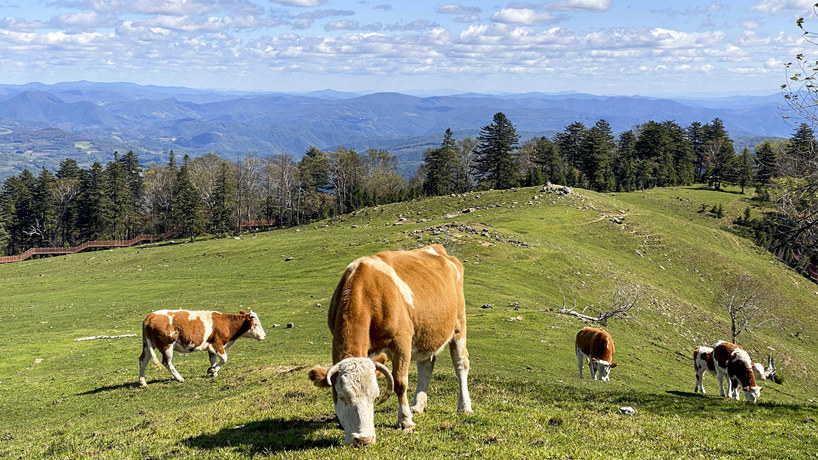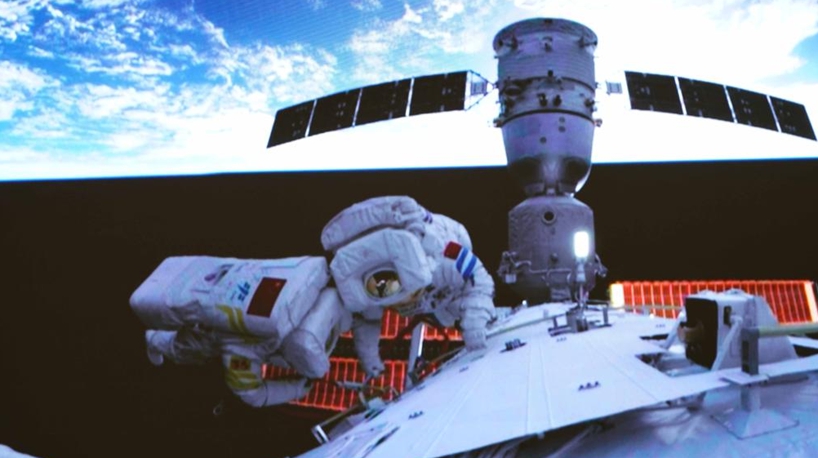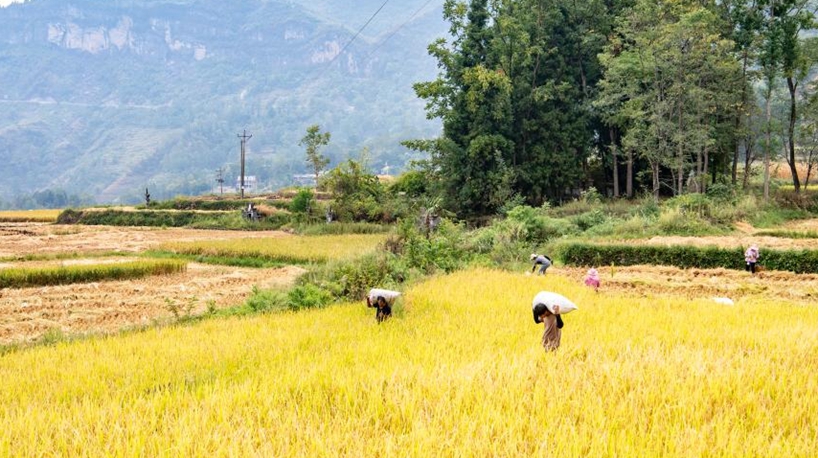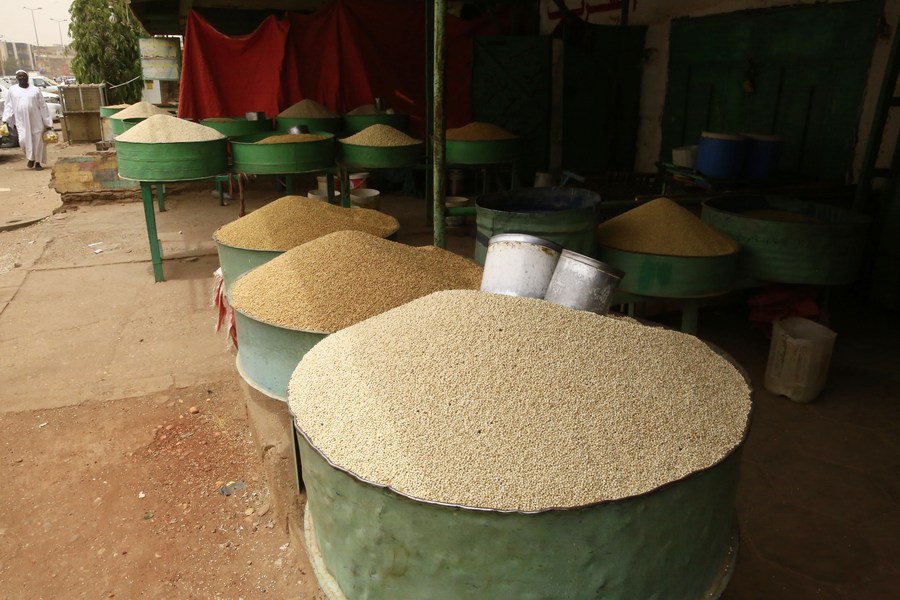
Photo taken on May 22, 2022 shows a grain shop at a local market in Khartoum, Sudan. Sudan faces a deteriorating food shortage or even a crisis in 2022 and the people suffering acute hunger may amount to some 18 million out of the country's total 45 million population, local experts have warned. (Photo by Mohamed Khidir/Xinhua)
WASHINGTON, Sept. 19 (Xinhua) -- The COVID-19 pandemic, extreme weather, and geopolitical conflicts have sent shock waves through the global food market, leading to sharp increases in the prices of major crops and causing food shortages in many parts of the world.
The United Nations and the World Bank, among other international organizations, have warned of the severe consequences of the global food crisis, noting that the situation is going from bad to worse.
Meanwhile, the United States, a major force behind the Russia-Ukraine conflict, is reaping the benefits of the global food crisis, as U.S. agricultural giants see their stocks go up and wealth grow, despite hundreds of millions suffering from food insecurity.
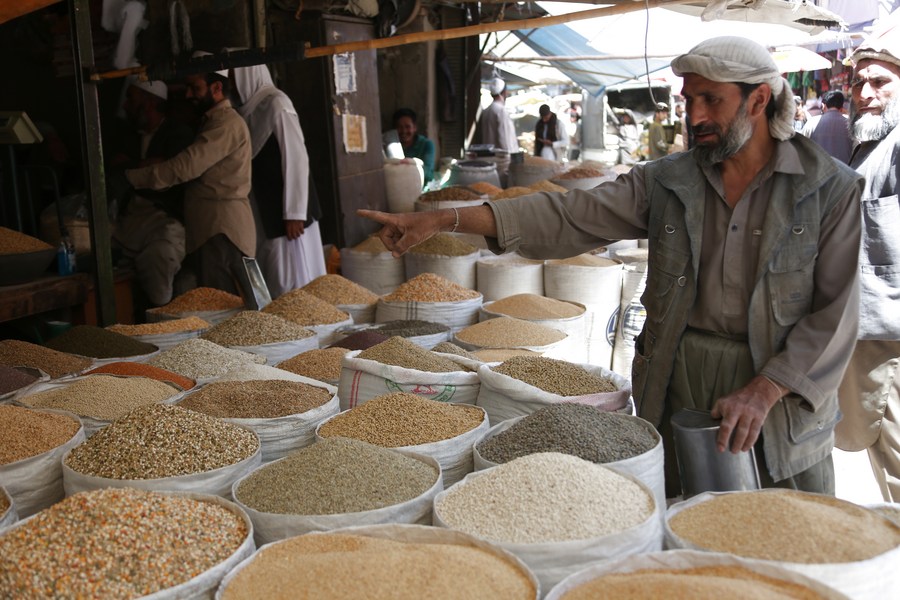
Photo taken on May 21, 2022 shows a grain shop in Kabul, Afghanistan. (Photo by Saifurahman Safi/Xinhua)
WORSENING FOOD CRISIS
Even before the COVID-19 pandemic reduced incomes and disrupted supply chains, chronic and acute hunger were on the rise due to factors including conflict and climate change, according to the World Bank.
The disruption caused by the conflict in Ukraine has added to price pressures, with costs likely to remain high for the foreseeable future and expected to push millions of people into acute food insecurity, the World Bank noted.
The Russia-Ukraine conflict has lifted food prices and hit the poorest the hardest, World Bank President David Malpass said in April, warning that the food crisis will last for months and probably into next year.
Ukraine and Russia are both major grain exporters, and Russia is also a major fertilizer exporter. The escalating Ukraine crisis and Western sanctions against Russia have led to higher costs of grain, fertilizer and energy, which together resulted in higher food prices.
"Because the cost of fertilizers has in some cases quadrupled, many farmers cannot afford them anymore, and that will be affecting the harvest this year and next year," Maximo Torero, UN Food and Agriculture Organization's chief economist, said earlier this month.
"If the war continues, in 2022 and 2023 we could potentially have a food access problem coupled with a food availability problem, because Ukraine and Russia would significantly reduce their exports, including fertilizers. This is a situation we have to avoid," said Torero.
"While needs are sky-high, resources have hit rock bottom," the UN World Food Programme (WFP) said in a recent statement, noting that it requires 24 billion U.S. dollars to reach 153 million people in 2022.
Since 2019, the number of those facing acute food insecurity has soared from 135 million to 345 million, with a total of 50 million people in 45 countries "teetering on the edge of famine," according to the WFP.
AMERICA TO BLAME
The Russia-Ukraine conflict is without doubt a major contributor to the current global food crisis, and the United States, which poured oil on the flames in the conflict, is to blame.
In the Western narrative, the Ukraine crisis is entirely caused by Russia. But analysts pointed out that the situation in Ukraine has evolved to where it is today because the United States has been squeezing Russia's strategic space to safeguard its own hegemony.
Since the outbreak of the Ukraine crisis, the United States and its allies have imposed rafts of sanctions on Russia, further disrupting the global supply chain that has already been crippled by the pandemic, and leading to a spike in global food and energy prices.
In a fact sheet published in July, the U.S. Treasury Department attempted to clarify its sanctions policy on Russia, saying that Russian agricultural and medical products are not targets, while noting that it strongly supports UN efforts to alleviate global food shortages.
Russian Foreign Minister Sergei Lavrov, however, said later in July that the U.S. promises to exempt Russian food supplies from sanctions had not been fulfilled.
Russia, a major grain and fertilizer exporter, has been complaining that Western sanctions impeded its exports despite a UN-brokered deal. UN Secretary-General Antonio Guterres has also called for unimpeded access of Russian food and fertilizer to the global markets.
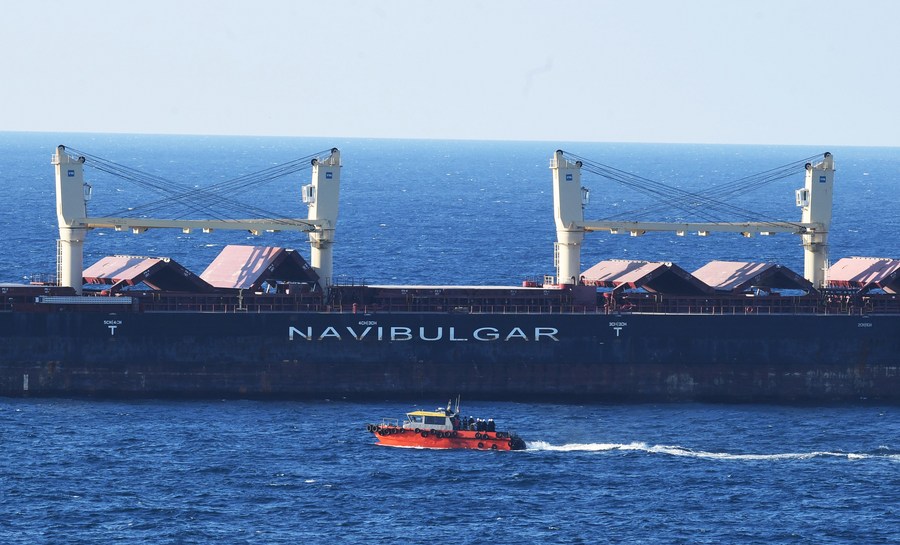
A vessel in the second caravan of ships transporting grain from Ukraine arrives at the Bosphorus Strait in Istanbul, Türkiye, Aug. 6, 2022. (Xinhua/Shadati)
REAPING ENORMOUS PROFITS
A few countries, including the United States, have manipulated the global food trading system and made huge profits during times of crisis. In every global food crisis since the Second World War, the United States played a prominent role.
The global food security issue has been consciously manipulated by the United States for pursuing its hegemony and making profits, Cihat Yayci, a retired Turkish admiral, told Xinhua, perceiving the United States as a mastermind of such speculations.
According to an article from the Johns Hopkins University's School of Public Health, consolidation in U.S. agriculture started in the 1950s, with the shift toward fewer and larger farms, pushing smaller farms out of business in the next few decades.
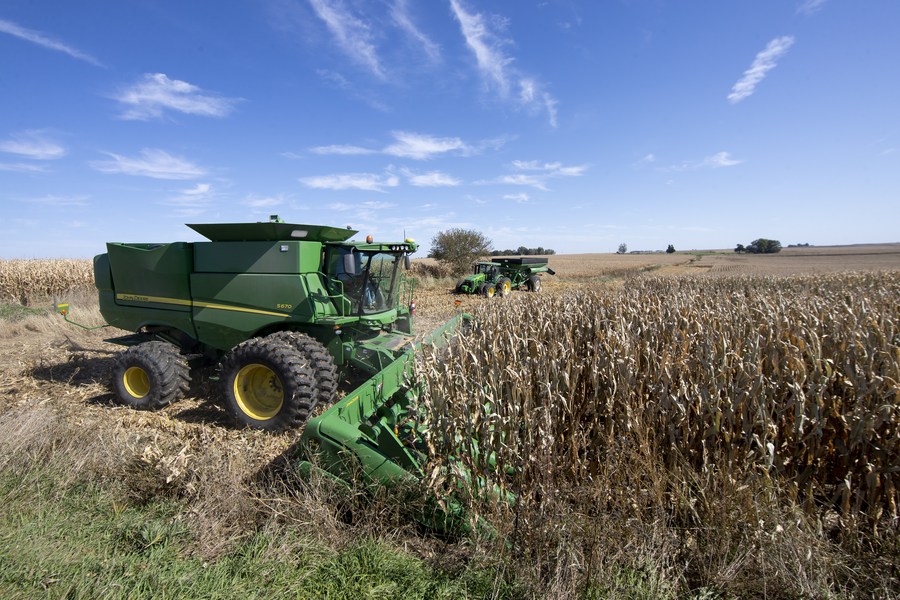
A combine harvester works in a corn field in a family farm in Atlantic, a small city in the Midwestern state of Iowa, the United States, Oct. 14, 2019. (Xinhua/Wang Ying)
U.S. government policies encouraged farmers to scale up their operations, prompting consolidation and market concentration, eventually realizing agricultural industrialization. With the support of a few large multinational enterprises in seed, fertilizer, grain processing, grain trade and beyond, the United States has secured its dominance of the global food system.
Four big companies currently control the world's agriculture commodity trade -- ADM (The Archer-Daniels-Midland Company), Bunge, Cargill and Louis Dreyfus, three of which are American. Monsanto, a U.S. agricultural giant, controls a big share of the global seeds market, leading to a strangle-hold on seed varieties, distribution and price.
Stock prices of ADM and Bunge skyrocketed after the outbreak of Ukraine crisis. Even with ups and downs, ADM's stock price is still some 30 percent above its price at the start of the year.
Cargill, a private company, has seen the wealth of its owners surge amid soaring commodity prices during the pandemic and Ukraine crisis. The company now counts 12 family members as billionaires, up from eight before the pandemic, according to a report published in May by Oxfam GB, a British charity organization.
"It is morally indefensible that people in East Africa are dying of hunger while the fortunes of the world's super-rich are fuelled by skyrocketing food and energy prices," said Danny Sriskandarajah, Oxfam GB chief executive.
(Xinhua Correspondent Wang Feng in Istanbul contributed to the report.)■

